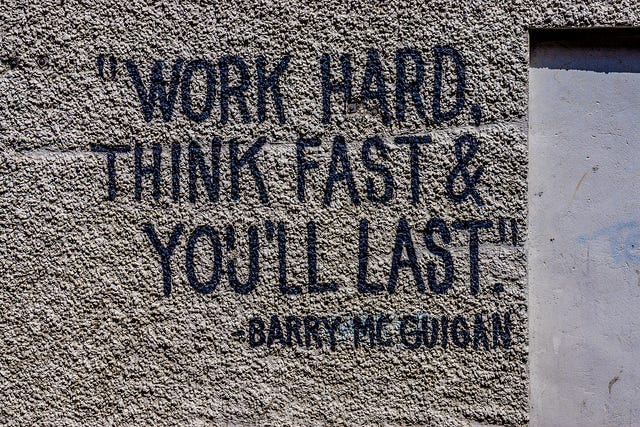
This post was originally published on Medium in 2013.
In high school I organized a large conference for 1000+ attendees. I managed a $20,000 budget and a team of ~15 other students, planning 6 months in advance for a 2 day event.
Event planning might be the closest you can get to starting a company. You have people counting on you, you have a set of constraints, and despite months or years of planning, Murphy’s Law always seems to take hold.
Remember Eyjafjallajökull? It decided to rain ash across all of Europe as a box of 1000 gift bags for our attendees was on a freighter en route to New York. Lunch was an hour late. Ice cream melted in the unseasonably warm weather. Our registration system went down when the internet connection in the venue slowed to a crawl. People were lost in the building because of poor signage.
So much for planning.
I don’t care how smart or experienced you are, how long you have to plan, or how many people you have helping you. When something goes wrong—when everything goes wrong—your success depends on how well you can adapt and fix things. You need to be more MacGyver than Nate Silver, more Jack Bauer than Sherlock.
Problem-solving is a muscle, and just like muscles in your body there are slow-twitch and fast-twitch decisions. Engineers are great at analyzing problems over long periods of time. Trying to decide what car to buy or what framework will be most efficient? We can systematically analyze the data we have to come to a best guess. But how well do you behave under pressure? Can you find a bug in under a minute when it’s preventing millions of users from logging in? How do you respond when you have 1000 people waiting for lunch and the delivery truck is stuck in traffic?
Things always go wrong. How quickly you make those snap decisions is all that matters.
 zmh.org
zmh.org



